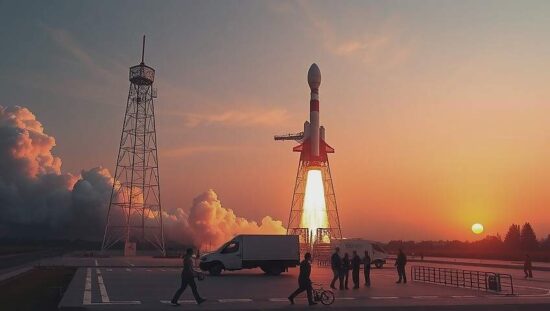India Announces Plans to Send First Astronaut in 40 Years to Space
India has announced its intention to send its first astronaut into space in over four decades next month. The country’s only astronaut to date is Rakesh Sharma, who flew aboard a Soviet Soyuz spacecraft in 1984.
Group Captain Shubhanshu Shukla of the Indian Air Force will be part of the Axiom-4 mission in May, a private space flight conducted in partnership with Axiom Space, SpaceX and NASA. Shukla was selected as one of four astronauts for India’s Gaganyaan program last year, which aims to send Indian astronauts on manned space missions.
According to the Indian Space Research Organisation (ISRO), Shukla will be the first Indian to visit the International Space Station (ISS) and the first Indian astronaut to fly into space in over four decades.
Shukla’s Axiom-4 mission will provide valuable firsthand experience in various aspects of space travel, including spacecraft operations, launch protocols, adaptation to microgravity and emergency measures that are crucial for India’s plans to send manned missions into space.
“India is ready for the next milestone in space” said Jitendra Singh, the Minister of State for Science and Technology. He noted that the collaboration with international partners and the strategic momentum of projects like Gaganyaan demonstrate India’s determination to become a world leader in space technology.
India has made significant progress with its Gaganyaan mission in recent months. Last year, the ISRO began assembling the Mark-3 space module for the first unmanned flight of Gaganyaan. In January, the agency successfully conducted an unmanned docking maneuver, paving the way for the development of its own space station.
In the coming months, the space agency will conduct the D2 test vehicle mission, a critical test that simulates a emergency abort and the effectiveness of the Gaganyaan rescue system for the crew. The mission will also include a sea rescue of the crew module and practice procedures required for India’s first manned spaceflight, as Singh explained.
Additionally, New Delhi has unveiled plans for a range of new space missions, including the PSLV-C61 mission, which will carry the EOS-09 satellite with synthetic aperture radar. In June, the ISRO will launch the NISAR satellite on the GSLV-F16. India also plans to launch the BlueBird Block-2 satellites of the US-based AST SpaceMobile Inc. using the LVM-3 heavy-lift rocket.





